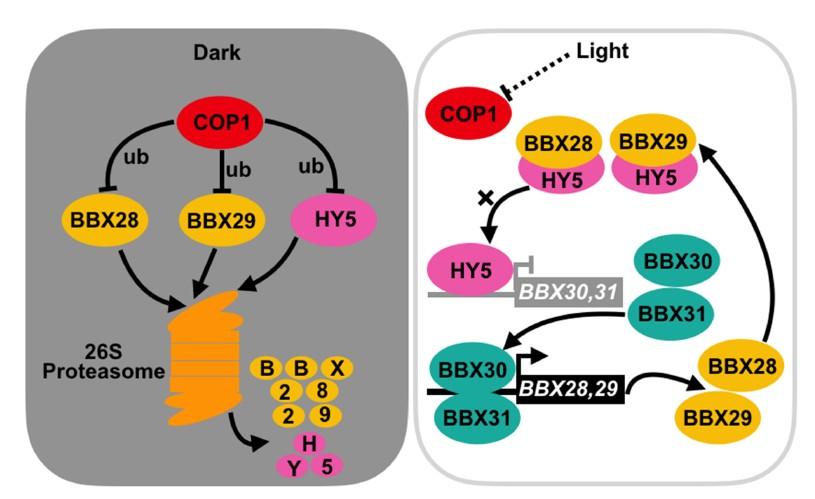New progress made in research on mechanisms into plant photomorphogenesis
2020-07-23
Research conducted by biological scientists at Southern University of Science and Technology (SUSTech) and Nanjing Agricultural University (NJAU) has found a new regulatory mechanism for plant photomorphogenesis.
On July 12, SUSTech Long-term Distinguished Visiting Chair Professor Xingwang Deng (Biology) worked with his research team and the team of NJAU Dr. Dongqing Xu. Together, they have published cutting-edge research in the high-impact academic journal, The Plant Journal (IF = 6.141). Their paper was titled, “BBX28/BBX29‐HY5‐BBX30/31 form a feedback loop to fine-tune photomorphogenic development.”
The B-box protein family is a vital regulatory factor fundamental to plant growth. The family is involved in many light-regulated plant growth and development processes. These processes include seed germination, shade avoidance, and photomorphogenesis.
The research teams collaborated to further reveal the working mechanisms behind the four B-box family members that regulate plant photomorphogenesis together. Previous scientific studies had indicated that BBX28 and BBX29 could form heterodimers with HY5 to inhibit its biochemical activity. HY5 directly bonded to the promoters of BBX30 and BBX31, which inhibited the gene expression of these two photomorphogenesis repressors.

Both BBX30 and BBX31 could bind to the promoter regions of BBX28 and BBX29 genes in plants. The binding would positively regulate their transcriptional expression. It means that BBX28/BBX29-HY5-BBX30/BBX31 creates a circular regulation mechanism that controls the expression of downstream target genes. This mechanism influences the photomorphogenesis of plants and helps scholars better understand the process.
SUSTech doctoral student Tingting Yan and NJAU doctoral student are the co-first authors of the paper. Professor Xingwang Deng and Dongqing Xu are the co-correspondent authors. Additional contributions came from Lanzhou University and Peking University.
This research received support from Southern University of Science and Technology, the National Key Research and Development Program, and the National Natural Science Foundation of China.
Article link: https://doi.org/10.1111/tpj.14929




